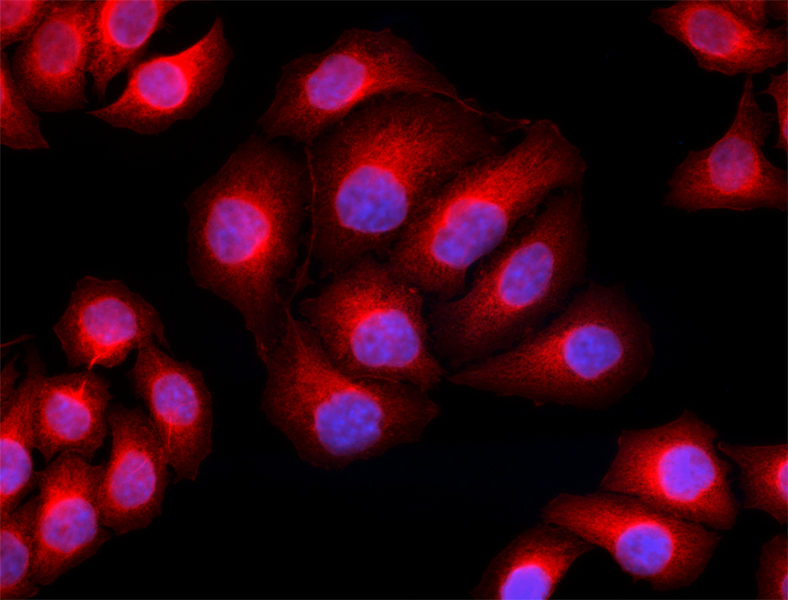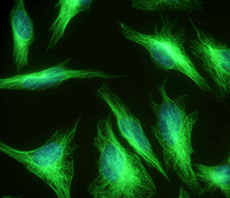Abnormal microtubule dynamics are associated with neurodegenerative disorders including Alzheimer’s and Parkinson’s diseases (PD)2. Proper folding of tubulins is important for their function. Misfolded tubulins can be toxic and need to be rapidly degraded to avoid cellular damage. Tubulin turn-over is accomplished through ubiquitination by the parkin E3 ubiquitin ligase, a protein linked to PD3. Parkin was shown to bind to α- and β-tubulin heterodimers, enhancing their ubiquitination and subsequent degradation. In addition, parkin may also participate in degrading misfolded tubulins generated by microtubule-depolarizing toxins and protect neurons from these toxins3.
Post-Translational Modifications in Cancer
Alterations in microtubule networks have been implicated in a wide range of cancers and can be attributed to tubulin PMTs, MT stability, and alterations in the expression of tubulin isotypes. Acetylated α-tubulin plays an important role in a variety of cellular functions including intracellular trafficking and mitosis. In the context of cancer, elevated levels of acetylated α-tubulin have been reported in tumor cells where they contribute to the tumor response to tubulin-binding chemotherapy agents and disease prognosis. Increased α-tubulin acetylation in metastatic breast cancer, for example, promotes the formation of membranes protrusions that enable breast cancer cell migration4. Alpha-tubulin acetylation can be reversed by two de-acetylating enzymes: histone deacetylase 6 (HDAC6) and sirtuin 2 (SIRT2). Interestingly, concurrent upregulation of HDAC6 with a decrease in acetylated α-tubulin has been suggested to correlate with a better prognosis in breast cancer, presumably by affecting microtubule stability4. Increased tubulin acetylation may contribute to aggressive tumor behavior in various cancer cells by 1) maintaining protein kinase B (also known as AKT) in an active state and enhancing oncogenic signaling5, or 2) upregulating the levels of anti-apoptosis proteins, such as MCL-1, by preventing its degradation by the ubiquitin-proteasome pathway and enabling apoptosis avoidance mechanisms6.
 Login/Register
Login/Register 








Follow Us